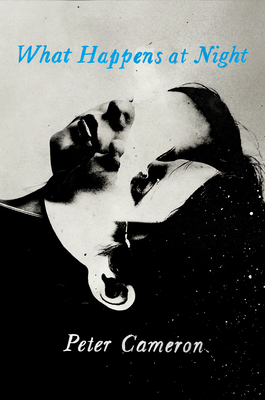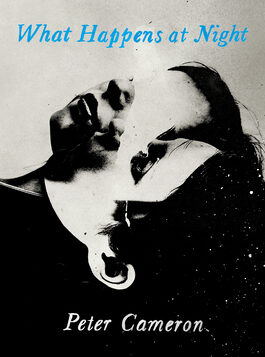 What Happens at Night
What Happens at Night
by Peter Cameron
Catapult. 320 pages, $26.
WE’VE ALL come across people who say they don’t like fiction because it doesn’t teach them anything. I contend that a person could read the entire Encyclopedia Britannica website and not learn as much about human nature as they would by reading an especially fine novel, such as Peter Cameron’s What Happens at Night.
Even though much of this novel takes place in an unnamed land with unnamed characters, some of whom interact with others who may not even be alive, Cameron continues to enlighten us with plausible real-life situations. There is a deep darkness to be penetrated in this tale. But the main male character, who spends much time immersed in such darkness, manages to say at one point: “It amazes me, how things have a way of working themselves out, if you just persist.” Later he adds, prophetically (if a bit Pollyannaishly) that “things don’t always end badly.” Take that as your cue to keep reading.
Just as their spooky train ride culminates in what might not even be the right depot, so too there is something wrong with this couple. Early on, we learn that the woman was “at a place in her life where it was necessary to discern and appreciate any charm or beauty she encountered.” She certainly does not appreciate her husband, who—judging by the discreet attention he receives at the hotel by everyone from an elderly chanteuse to a businessman—seems to be worthy of appreciation. While we soon learn that his wife is desperately ill and more prone to staying in the potentially haunted hotel room than venturing out, her husband is eager to get oriented, taking a stool at the hotel bar every evening, where the bartender, “a young man, tall and dark, vaguely Asiatic and remarkably stiff,” pours him shots of the local schnapps. While there is no indication that the man is gay, Cameron reminds us in his many novels that we all find each other no matter where we are, even in a place as forbidding and un-gay as this unnamed town. A businessman eyeing the man approaches him, makes a pass, and upon being rebuffed, says to him: “Oh, I get it. You’re on the DL.” The businessman then reminds him of “a nice hot fuck” they had shared at some anonymous boîte in Manhattan years earlier. The man claims not even to know the term “DL” (the “down low”). Meanwhile, the man’s other new friend in town, a cabaret singer with the unwieldy name of Livia Pinheiro-Rima, insists, too, that the man is gay. “Everyone’s at least a little homosexual,” she informs him, after she learned that the man had spent the night with the businessman. “And I’d say you’re more than a little.” When he asks why she would say that, she cites the timid manner in which he had entered the bar, “looked around, as if you were lost, or didn’t belong.” This frigid, snowbound place seems to cast a spell on all who visit and live there. Upon looking at oil rig workers eating alone in a restaurant, the man wonders: “what kept these men alive, how so much could be subtracted from a life—warmth, companionship, culture, even light—and yet the life itself endure.” Despite the gloom, the man finds different kinds of activity to keep him busy, whether it’s watching the octogenarian chanteuse belting out some tunes, learning to change the diaper on his adopted infant, or collapsing in the bed of the businessman. Cameron knows how to tell a compelling story. Among his eight novels is The Weekend (1994), a moving novel that chronicles how a man who had died of AIDS continues to haunt those left behind. The trouble with What Happens at Night is that the reader is immersed in a milieu that is unremittingly unsettling, nightmarish, and surreal in its distortion. We want the couple to get their baby and get out of Dodge, or whatever this place is called. While not everyone manages to leave, we are reminded by the cabaret singer that “Everything will be fine and if it isn’t fine it will be bearable.” This book is more than bearable. While it may be a relief to leave the landscape at last, we won’t forget we were there, all the while enthralled by Cameron’s prose and poetic sense of detail. And a final word of wisdom you’re not likely to come upon in any book of facts is uttered by the businessman. While toasting the man with a Negroni, he chimes: “May our cocks always be harder than our lives.”
David Masello, a widely published essayist, poet, and playwright, lives in New York City.





